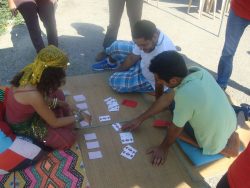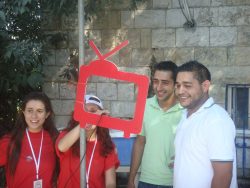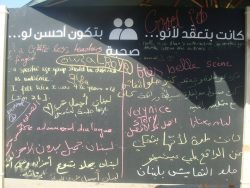Imagine a less divided Lebanon
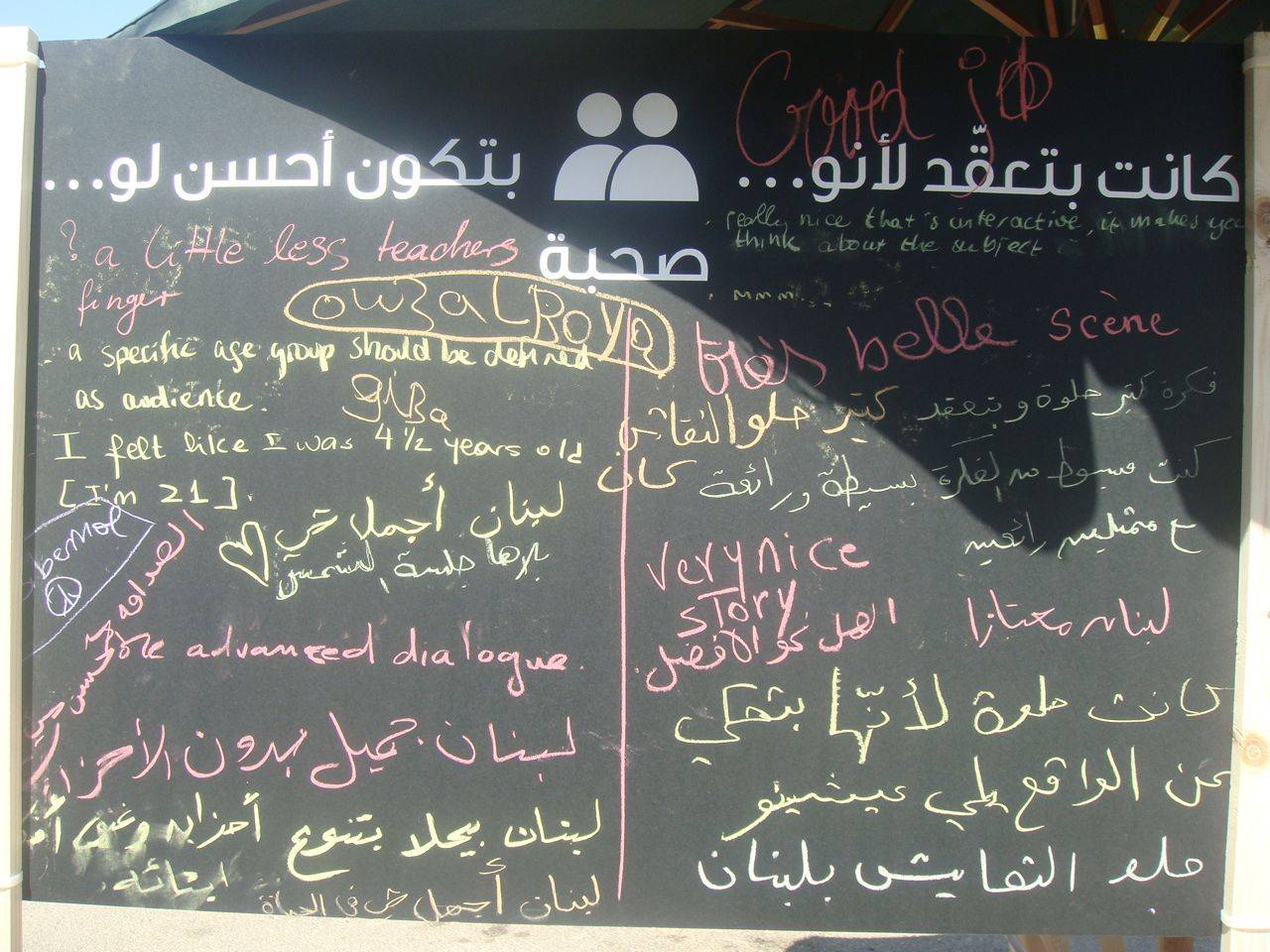
Imagine living in a country not defined by sectarianism or the words “Muslim,” “Christian,” and “Druze.” Imagine a country not defined by a 15-year civil war coupled or a deep-seated fear, sometimes hatred, for the “other.” Imagine a less divided Lebanon.
This is why Joanna Choukeir, a PhD candidate at the University of Arts London, launched the Imagination Studio, an ongoing project designed to bring Lebanese youth from different backgrounds and regions together in an interactive, productive space. Choukeir’s latest effort, which was co-created with student and activist volunteers, took place over the course of two days in the form of an “Imagination Market” hosted in Jbeil and Baakline, respectively.
There were five pop-up tents to address the five key social barriers which contribute to a sectarian and divided Lebanon: Gharam (Love), Moushwar (Trip), Khabriyeh (Story), Dardasheh (Chat), and Souhba (Friendship). Volunteer Aisha Habli put it simply: “We want to fix the social situation in Lebanon.” She spoke about the project and its audience as being “of the youth and for the youth.” Her statement echoes Choukeir’s determination to have youth come up with solutions “for themselves and with one another.”
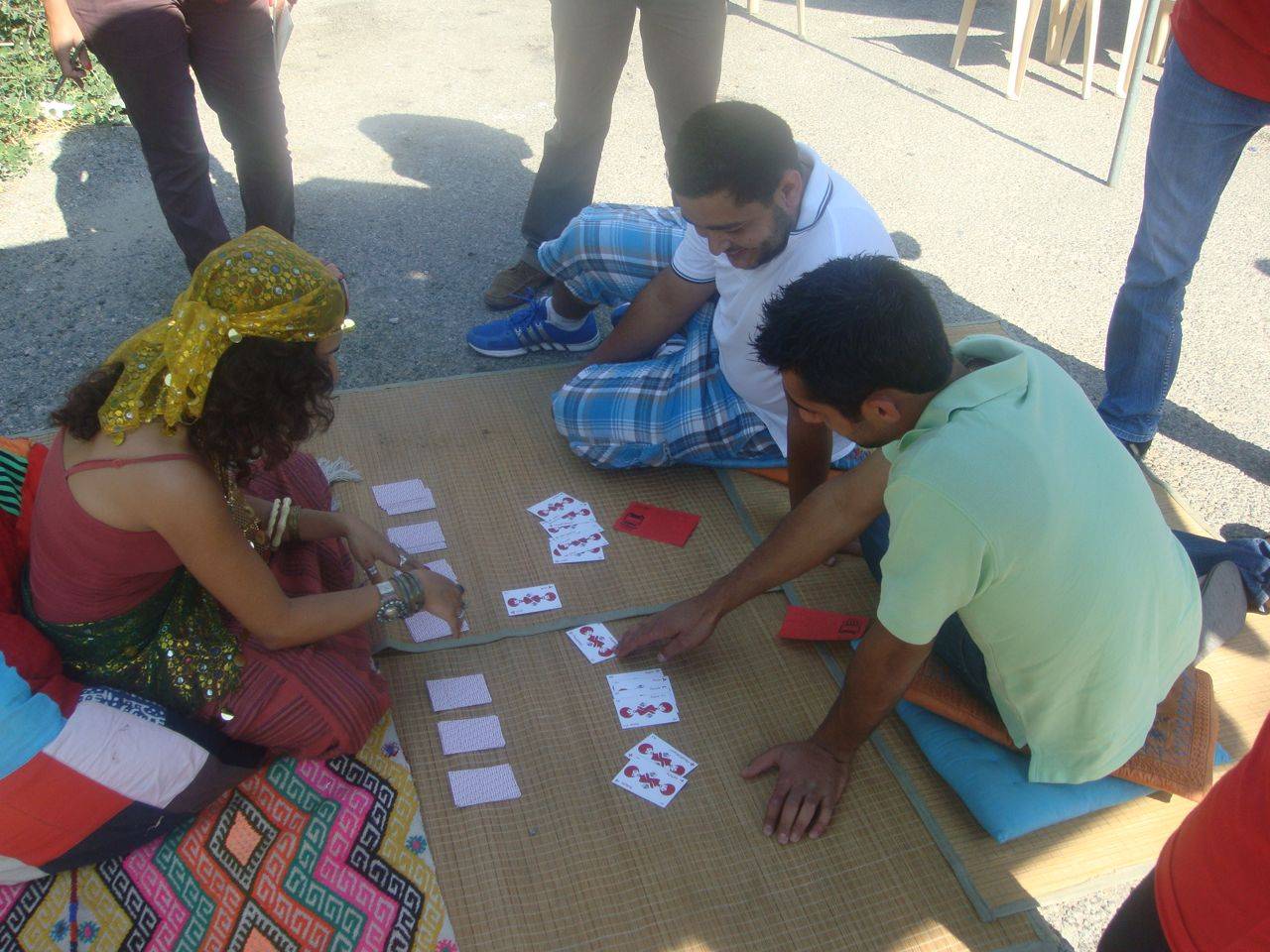
Yossef Chaker, a fellow “Imaginer” says: “What the studio promotes is what I’ve lived.” His mother is a Muslim and his father a Christian. As a result of this mixed upbringing, he says he’s “lived the good experience in Lebanon.” He, like Aisha, was introduced to Imagination Studio at TEDx Beirut.
Back at the workshop, “Imaginers” called out to passerby on the side of the main road in Baakline, a quiet town in the Chouf populated predominately by Druze. They managed to coax two young men out of their convertible over to the dardashe booth where they reluctantly sang The Beatles’ “Imagine” in Arabic, English, and French. They moved from booth to booth, reluctant, but laughing nonetheless. They visited moushwar where volunteers proposed taking them on a trip to an old Maronite Church that closed down years before – and which only two of the workshop’s 50 participants knew existed. The day before, the trip was from Jbeil to a fish tavern owned by a woman named Maggie who opened up shop just after her husband passed away.
The two young men also sat down for a short skit at the souhba booth, where actors had an argument over their political allegiances – Hizb Sushi and Hizb Hummus. In the post-performance discussion, which focused on brainstorming ways the argument could have been more civil, one of the participant’s response was: “We already know all of this.”
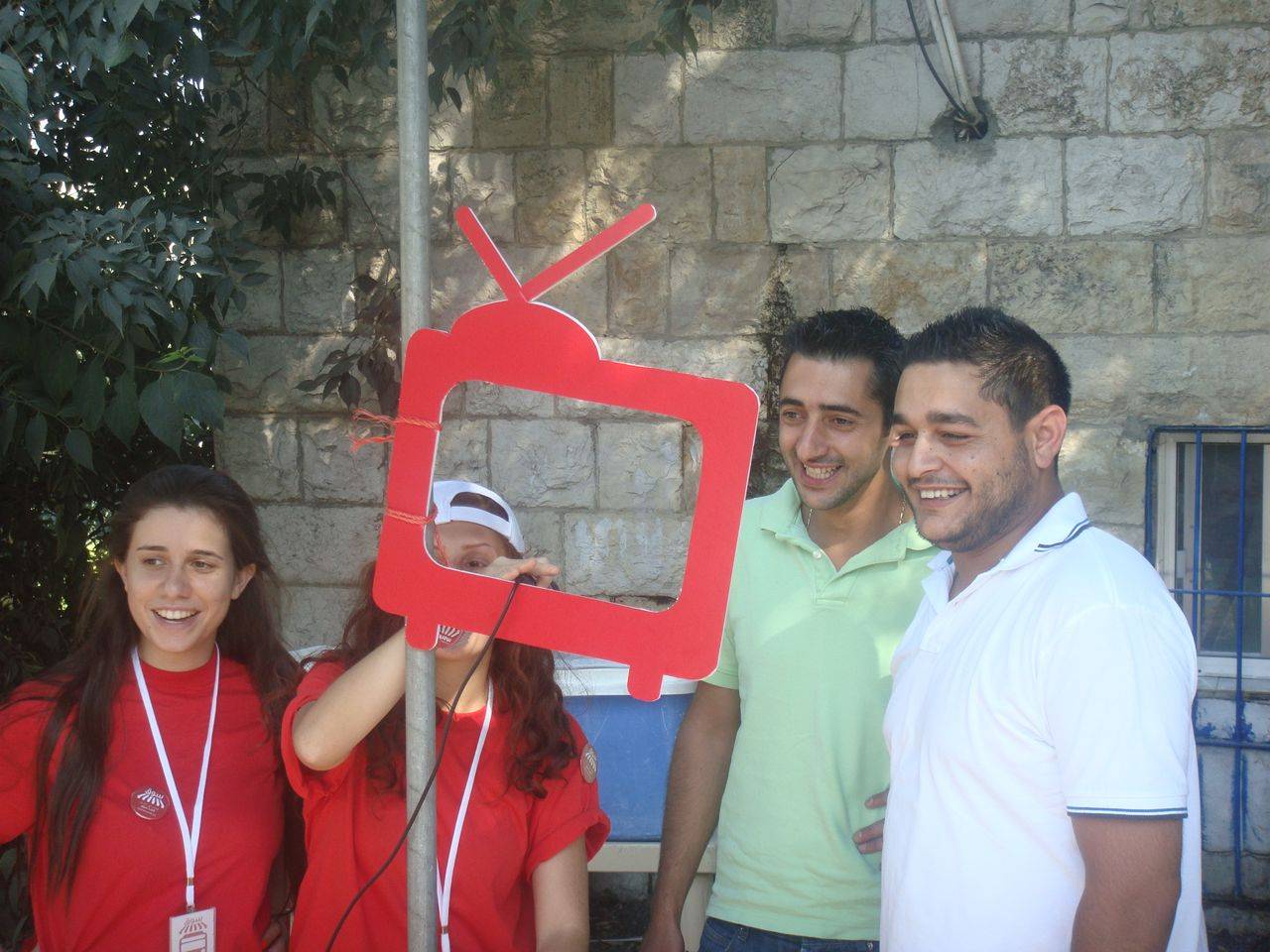
Choukeir says she does not feel pressure to change people’s minds. On the subject of sectarian division in Lebanon, she has separated the public’s general reaction into five categories: open-minded, curious, stubborn, distant, and skeptical. She believes that her efforts will have the most impact on the “curious” and the “skeptical,” both of whom just need a little “nudge” to see a “new path.”
“We had some ‘distant’ and ‘stubborn’ yesterday. The distant don’t even want to acknowledge that there’s a problem in Lebanon; they’re living in their closed social circles and don’t think anything is wrong with that. The stubborn realize that there’s a whole other community in Lebanon that they don’t know but they don’t even want anything to do with it. […] But with the curious and skeptics, there is potential. Sometimes they just haven’t had the exposure. Seeing something optimistic like this could trigger the change.”
Could this fascinating project evolve into something that makes a real and lasting impact on the youth and future generations in Lebanon? The Imagination Studio is certainly up for the challenge.
To learn more about this project, check out the Imagination Studio website.
